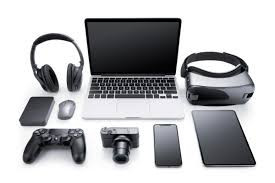views

🛠️ Exploring the Fascinating World of Electronics
Electronics is the heartbeat of modern technology. From the smartphones in our hands to satellites orbiting the Earth, electronics has revolutionized how we live, communicate, and work. It is a dynamic and ever-evolving field that combines science, engineering, and creativity to build systems and devices that improve the quality of life and drive innovation.
At its core, electronics is the study and application of electrical circuits involving active electrical components like transistors, diodes, and integrated circuits. These components manipulate the flow of electric current, enabling the functioning of a vast array of devices—from basic calculators to highly sophisticated quantum computers.
One of the most remarkable aspects of electronics is its versatility. It plays a pivotal role across diverse industries including healthcare (like MRI machines and pacemakers), communication (such as smartphones and fiber optics), automotive (like electric vehicles and automatic braking systems), and entertainment (televisions, gaming consoles, and music systems). Each innovation in this field contributes to faster, smarter, and more efficient technology.
The advancement of electronics is closely linked with the growth of digital technologies. The shift from analog to digital electronics has led to miniaturization, enhanced speed, and higher processing capabilities. Integrated Circuits (ICs), also known as microchips, are now capable of housing billions of transistors on a single chip. This miniaturization has made it possible to develop portable and wearable devices that were unimaginable a few decades ago.
Moreover, embedded systems—a combination of hardware and software designed for a specific task—are a crucial part of electronic devices. These systems are embedded in everything from washing machines and traffic lights to drones and industrial robots. Their reliability, efficiency, and real-time processing capabilities make them essential in automation and smart technologies.
In today’s digital world, learning electronics is not just for engineers or tech enthusiasts—it’s for anyone interested in understanding how things work. Educational platforms and tech firms are making electronics more accessible than ever. One such example is Hexadecimal Software, a company dedicated to offering cutting-edge solutions and training in areas like embedded systems, IoT (Internet of Things), and automation. Their focus on real-world applications and hands-on experience helps learners bridge the gap between theory and practice. You can explore more about their work and services by visiting https://www.hexadecimalsoftware.com/.
The future of electronics is even more promising. Emerging fields such as flexible electronics, wearable sensors, quantum computing, and artificial intelligence are pushing the boundaries of what’s possible. With increasing demand for smart and sustainable technologies, the role of electronics in shaping the future is more vital than ever.
In conclusion, electronics is not just a branch of engineering; it is the backbone of innovation. Whether you are a student, a professional, or a curious learner, diving into the world of electronics can open up a universe of possibilities. With continuous learning, experimentation, and platforms like Hexadecimal Software guiding the way, the future of electronics looks brighter—and more electrifying—than ever.
🛠️ Exploring the Fascinating World of Electronics
Electronics is the heartbeat of modern technology. From the smartphones in our hands to satellites orbiting the Earth, electronics has revolutionized how we live, communicate, and work. It is a dynamic and ever-evolving field that combines science, engineering, and creativity to build systems and devices that improve the quality of life and drive innovation.
At its core, electronics is the study and application of electrical circuits involving active electrical components like transistors, diodes, and integrated circuits. These components manipulate the flow of electric current, enabling the functioning of a vast array of devices—from basic calculators to highly sophisticated quantum computers.
One of the most remarkable aspects of electronics is its versatility. It plays a pivotal role across diverse industries including healthcare (like MRI machines and pacemakers), communication (such as smartphones and fiber optics), automotive (like electric vehicles and automatic braking systems), and entertainment (televisions, gaming consoles, and music systems). Each innovation in this field contributes to faster, smarter, and more efficient technology.
The advancement of electronics is closely linked with the growth of digital technologies. The shift from analog to digital electronics has led to miniaturization, enhanced speed, and higher processing capabilities. Integrated Circuits (ICs), also known as microchips, are now capable of housing billions of transistors on a single chip. This miniaturization has made it possible to develop portable and wearable devices that were unimaginable a few decades ago.
Moreover, embedded systems—a combination of hardware and software designed for a specific task—are a crucial part of electronic devices. These systems are embedded in everything from washing machines and traffic lights to drones and industrial robots. Their reliability, efficiency, and real-time processing capabilities make them essential in automation and smart technologies.
In today’s digital world, learning electronics is not just for engineers or tech enthusiasts—it’s for anyone interested in understanding how things work. Educational platforms and tech firms are making electronics more accessible than ever. One such example is Hexadecimal Software, a company dedicated to offering cutting-edge solutions and training in areas like embedded systems, IoT (Internet of Things), and automation. Their focus on real-world applications and hands-on experience helps learners bridge the gap between theory and practice. You can explore more about their work and services by visiting https://www.hexadecimalsoftware.com/.
The future of electronics is even more promising. Emerging fields such as flexible electronics, wearable sensors, quantum computing, and artificial intelligence are pushing the boundaries of what’s possible. With increasing demand for smart and sustainable technologies, the role of electronics in shaping the future is more vital than ever.
In conclusion, electronics is not just a branch of engineering; it is the backbone of innovation. Whether you are a student, a professional, or a curious learner, diving into the world of electronics can open up a universe of possibilities. With continuous learning, experimentation, and platforms like Hexadecimal Software guiding the way, the future of electronics looks brighter—and more electrifying—than ever.
Written by :- Hexadecimal Software



Comments
0 comment